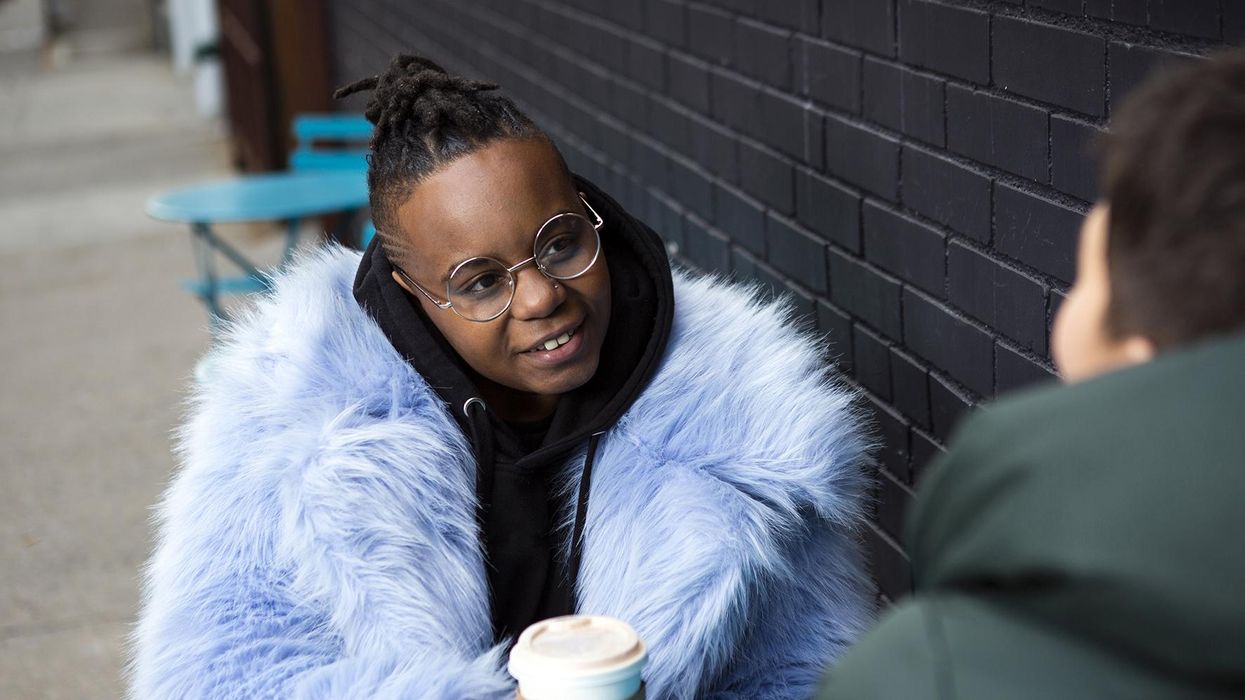
Here are some easy ways you can be an ally to trans and non-binary people in 2019.
The LGBT Foundation have launched a handy guide, which includes information on asking about someone's pronouns, how to support a friend if they come out as trans, and how to show your support for transgender people.
It also gives advice on what to do if you make a mistake, and what to do if you have a friend or relative who keeps making jokes about transgender people which, let's be honest, happens more often than we'd like to admit with older generations.
IDAHOBIT is observed on May 17 annually and internationally, and it aims to coordinate international events that raise awareness for LGBT rights. The first day was celebrated in May 2005, and the date was chosen to commemorate the decision to remove homosexuality from the International Classification of Diseases of the World Health Organisation in 1990.
Speaking to mark the day earlier this week, Emma Meehan, Assistant Director of Public Affairs for the LGBT Foundation said:
We know that for many, seeing the recent wave of vitriol and attacks against trans people has motivated them to take a stand and be a better and more vocal supporter of the trans community.
This can often be a daunting place to start, as many people want to be allies but feel like they don’t have the knowledge and worry about making mistakes.
This guide gives people the tools to stand with their trans siblings in the fight for equality, whether that be advice on standing up against transphobia, or offering a hand of support in times of need. We know that in the end, equality wins, and together we can secure an equal future for all LGBT people.
So, how can you be a true transgender ally, and help those who are struggling in the marginalised community? Here are 4 of the best top tips.
1. How do I know someone's gender and pronouns?
If you're having a conversation with or about a person, it's usually considered more polite to ask for their pronouns. You can ask them privately, using sensitive language such as:
How would you like me to refer to you?
Or, alternatively:
Can I just check, what pronouns do you use?
In that instance, it leaves it up to the individual to either disclose more about their gender or to keep the information private, however, you've left it up to them, suggests the guide.
Don't worry if you make a mistake - it happens sometimes. The best option is not to linger on it but to acknowledge that you've made a mistake, often privately, and then to move on with the conversation.
2. How can I support my friend who has just come out as transgender or non-binary?
If you have a friend who's just come out as transgender or non-binary, there are a number of things you can do to support them. If they've reached out to you, you should consider it a privilege, because it's their way of saying that they want you to know their authentic self.
Open by thanking them for being honest with you, then tell them they have your support, and also what they'd like you to call them from now on if they've chosen different pronouns. They may not know yet, but in that case, you could encourage them to have an open dialogue with you if anything changes in the future, suggests the guide.
If they seem withdrawn soon after coming out, or they don't want to meet up with you as often, it doesn't mean that they don't want to be your friend anymore.
Be sensitive to the fact that they're going through a very difficult time, and there will be certain 'milestones' that they have to reach during their coming out journey, such as coming out to family, coming out at work, coming out to friends, changing their wardrobe, accessing a Gender Clinic, changing their names legally, or applying for a Gender Recognition Certificate, to name a few.
Let the person explore their identity at their own pace. It can be difficult to see a friend or loved one struggling, but it's important that you let them take the lead where possible.
3. I have a relative or friend who keeps making transphobic jokes. What can I do about this?
It goes without saying that jokes about marginalised communities are harmful and that they keep negative stereotypes going. They're generally built on a misunderstanding of who the community actually are, and a good way of challenging them is to question why the joke is funny in the first place.
A way of thinking about it is by classifying people as 'in' rather than 'out'. What that means is that ultimately, you should assume that the person simply doesn't know why their behaviour could be harmful and that we want them to grow and learn.
Support the transgender community to the best of your ability, but don't put yourself in danger. If the person you're talking to refuses to acknowledge transgender people as their assigned gender, then make it clear you won't be convinced otherwise, and you won't engage in debate further.
4. How can I show my support?
There are many ways to be an ally, but challenging negative views and stereotypes is a very powerful way of doing this. Share the work of transgender and non-binary people on social media - they're more than their gender identities - and congratulate their achievements.
Listen to trans and non-binary people's voices, including when they speak about issues they're facing in other areas of their lives. For example, black transgender people will have different experiences in life to white transgender people, or black cisgender people.
While not everyone has the available funds, there are also a number of charities organisations that you can donate to, too, such as the LGBT Foundation, Mermaids, Supporting BAME Trans People, and FFLAG.
More: 4 important things to remember on Transgender Day of Remembrance
More: The new Snapchat filter lets you swap genders and trans people have thoughts













